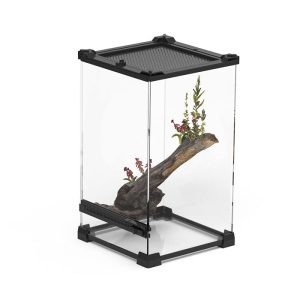Advantages and Disadvantages of the Basenji

The Basenji originates from Africa and belongs to the short-haired hound category, also known by the nickname “Congo Dog.” The most distinctive trait of this breed is its extreme reluctance to bark, sometimes even giving the illusion that it cannot vocalize. This trait likely stems from their historical origins. In modern times, their low barking frequency has made Basenjis a popular pet choice across Africa and Europe.
Advantages of Basenjis
1. Gentle and Friendly Temperament: Basenjis enjoy human companionship, displaying affection toward family members and children, making them excellent family pets.
2. Adaptable Lifestyle: Thrives in diverse environments, from urban apartments to rural yards. Requires minimal daily exercise for indoor living but still needs moderate outdoor time to maintain physical health.
3. Exceptional Sense of Smell: Demonstrates remarkable tracking abilities in search-and-rescue scenarios. Their acute olfactory skills even extend to medical detection applications.
4. Relatively Trainable: Naturally intelligent and eager to learn, they grasp and execute commands quickly. However, occasional stubbornness may require consistent, patient guidance during training.
5. Distinctive and Charming Appearance: Features unique physical traits like elongated ears, wide-set eyes, and expressive facial expressions that make them visually appealing.
6. Hygiene-conscious: Exhibits feline-like grooming habits, frequently wiping its face with front paws, and demonstrates strong self-hygiene awareness.
Basenji Drawbacks
1. Higher susceptibility to health issues: Prone to conditions like hip dysplasia, eye disorders, and skin diseases due to unique body structure and genetic factors. Regular veterinary check-ups and proactive preventive care are essential.
2. Prone to Weight Gain: Their small stature makes them susceptible to obesity without proper dietary management. Owners should strictly control food portions, avoiding overfeeding or frequent snacking.
3. Poor Swimming Ability: Their short legs and compact build make swimming challenging. Close supervision is essential near water to prevent drowning accidents.
4. Body Odor: Their skin surfaces, particularly in wrinkled areas, can develop unpleasant odors. Regular bathing and cleaning are essential to maintain hygiene.
5. Strong Independence: They occasionally exhibit independent and stubborn traits, potentially making it difficult to fully comply with owner commands. During training and guidance, owners must maintain patience and consistent effort, using positive reinforcement and rewards.
6. Higher Maintenance Costs: Due to their susceptibility to illness and need for specialized care, raising them involves relatively higher expenses. Owners must dedicate more time and resources, including regular veterinary check-ups, preparing appropriate diets, and purchasing necessary grooming supplies.
admin
-
Sale!

Washable Pet Cooling Pad for Cats and Dogs
$10.99Original price was: $10.99.$9.99Current price is: $9.99. This product has multiple variants. The options may be chosen on the product page -
Sale!

Washable Cat Window Hammock Cooling Bed
$23.99Original price was: $23.99.$22.99Current price is: $22.99. -
Sale!

Tropical Amphibian Rainforest Tank, Lizard Cage
$38.99Original price was: $38.99.$36.99Current price is: $36.99. -
Sale!

Silent 4-in-1 Waterproof Charging Dog Hair Trimmer
$49.88Original price was: $49.88.$47.99Current price is: $47.99.